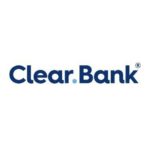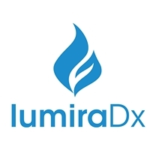5 companies that have kept quiet about their equity funding
Category: Uncategorized
An unannounced fundraising is simply an investment made into a private company that is completed without press coverage or a statement from the recipient company or funds that made the investment. These transactions are an integral part of the UK’s high-growth economy; 70% of all equity transactions are kept quiet. We are the only data provider in the world to track this activity.
We’ve previously explored the reasons a company might choose to keep a funding round private, looked at the prevalence of unannounced fundraisings, and examined which types of companies are most likely to keep a funding round under wraps. In this post, we’ve looked at 5 of the 8,860 companies that have secured an investment round without announcing it to the public, and posited why they have been kept secret.
As always, we use a mix of proprietary tech and human research to source and confirm the data. Our machine learning algorithms monitor the SH01 filings made to Companies House, and flag up any interesting creation or transactions of company shares.
Then, one of our brilliant in-house data curators will investigate and verify whether it’s a genuine investment. If so, all the details of the funding round are uploaded to the Beauhurst platform for our subscribers to search across and analyse. Want to find out more? Book a demo here.
ClearBank
Sector: Fintech
Total raised: £143m
C-19 impact: Potentially positive
Founders: Nick Ogden, Andrew Smith

Whilst household names Monzo, Starling and Revolut stand up to the traditional retail banks, ClearBank aims to rectify the inadequacies of the UK’s clearing banks. The first new clearing bank in more than 250 years, the cloud-based platform grants access to the UK clearing system through an API, so that payments can be made in realtime.
Set up in 2015 by serial entrepreneur Nick Ogden, and now running under the leadership of Charles McManus, ClearBank has raised a total of £143m of equity finance over four funding rounds. The most recent round took place in May 2019, and saw £59m traded for an 18% stake in the business, denoting a pre-money valuation of £265m.
Unlike the challenger banks Monzo and Revolut, who are very transparent with customers about their funding position, ClearBank kept each funding round quiet at the time of completion. It’s unclear why this may be, but it could be for the very simple reason that it wouldn’t have interested their customers; across the fintech sector, B2B companies are more likely to keep a round under wraps (65% of deals since 2011 went unannounced) than their consumer-facing counterparts (58% of deals since 2011 went unannounced).
However, some information has been released since the fundraisings, with an article published late last year identifying two of their angel investors as Petr Kellner and John Risley. The same article outlines Ogden’s vision for the company, which he expects to become his third billion-pound turnover company after Worldpay and Voice Commerce Group (now known as CashFlows). There’s still a ways to go before that vision is realised – latest financial figures (though reported all the way back in 2018), report a turnover of £838k and an operating loss of £29.5m.
As the fintech sector as a whole continues to perform well under the strain of the pandemic, and with ClearBank advertising for a number of new positions across the company, we’re excited to see how these numbers change over time.
Roborace
Sector: Robotics
Total raised: £72.7m
C-19 impact: Severe
Founders: Denis Sverdlov

Roborace has developed its own class of motorsport racing, similar to Formula One or Formula E, with one clear difference – all the participating cars are self-driving and electric powered. This racing class allows different brands to test out their technology, encourages the development of autonomous software, and introduces a new accolade to the world of AI and robotics.
Russian-born Denis Sverdlov, who is also the CEO of ARRIVAL – a Roborace partner and producer of electric vehicles, founded Roborace back in 2015. Since then, the company has grown to over 50 employees and raised £72.7m in equity over six funding rounds. None of these have been publicly announced.
At first glance, we might conclude that the company is growing steadily, and raising cash in order to fund its ambitious plans, which will hopefully prove fruitful down the line. However, valuation figures show a more nuanced story. The company’s most recent funding round in June 2019 was completed at a valuation of £57.2m post-money – notably less than the total funds raised to date.
On top of that, a closer look at the fifth funding round shows a pre-money valuation £700k (1.2%) under the previous post-money – making this what is commonly known as a “down round”, albeit a small one at that. It’s fairly common for down rounds to be kept private – no one wants to advertise that their company has lost value.
Whilst the company’s website is rather out of date, social channels remain highly active. A recent upload to the company’s youtube channel announced the launch of a music project as a precursor to the second season of the racing competition, “Season Beta”. As with many events this year, it remains to be seen whether the race will go ahead. Our analysts anticipate that the pandemic has already had a severe impact on the operations of the company. And with their most recent operating loss of £26m (2018), it may be a rocky road to survival.
People Matter
Sector: eHealth
Total raised: £25k
C-19 impact: Low
Founders: Amy King, Nigel Winship

People Matter develops artificially intelligent psychological wellness software and mobile apps, allowing users to track their emotional wellbeing and identify mood triggers. The business operates on both a B2B and B2C basis.
Founded by psychologist Amy King (CEO) and Growth Director Nigel Winship in January 2018, the company went on to secure an unannounced equity round worth £25k just over a year later. When a funding round goes unannounced, it’s often difficult for us to determine exactly who participated in the round, and whether it included follow on funding from previous investors. But things are a little easier in this case, where a company has only secured one round of equity.
Comparing ownership filings before and after the event shows the addition of eight shareholders. Some have made one or two other investments in the UK but most are first-time investors, and with a relatively small cash injection, it seems highly likely that this was a friends and family round. Many companies choose to keep these rounds quiet simply because they’re not ready to shout about themselves yet. Once the capital has been put to work and they have some results to show from it, these companies will be more likely to be open and transparent about their growth and upcoming plans.
Indeed, at just over two years old, People Matter is still in its seed stage of evolution with a bright future ahead of it. But with the coronavirus pandemic refocusing our attention on personal and employee wellbeing, there’s ample opportunity for PeopleMatter to consolidate their growth over the coming months.
Foam and Substance
Sector: e-commerce
Total raised: £53.9m
C-19 impact: Potentially positive
Founders: Marcia Kilgore

Foam and Substance operates cosmetic brands, including Beauty Pie – the first luxury skincare and makeup buyers club. The startup operates on a subscription basis, where members choose the amount they’d like to spend each month, and then select which products they’d like to receive for each month at a significant discount. Any cost that isn’t used is rolled over to the next month.
Product prices are significantly lower than those of luxury competitors, despite being sourced from the same labs. The company attributes these discounts to a simplification of the supply chain, forgoing retailer markup and avoiding the expensive endeavour of celebrity marketing.
The company was founded in 2015 by beauty guru and serial entrepreneur Marcia Kilgore of Soap and Glory and FitFlop fame. Within the last year the company raised its first round of £48.9m, with a smaller boost of £5m in April, after lockdown measures were put in place. Both of these investments went unannounced, and could be a sign that something big is in the works.
And it looks as though this capital is already being put to good use, with a fast expanding product array, a loyal customer base and the demand to match. The company has confirmed a surge in orders since lockdown measures were put in place, and with many of us having more time on our hands than ever before, an indulgence in the finer things is perhaps to be expected.
LumiraDx
Sector: Medical devices
Total raised: £34.2m
C-19 impact: Potentially positive
Founders: Ron Zwanziger

LumiraDx develops diagnostic technology for the medical sector, primarily through its clinical hardware as well as software solutions. The LumiraDx platform combines a small, portable instrument, advanced low cost test strip and seamless digital connectivity to deliver faster and more cost-efficient diagnoses without skimping on accuracy. The results of a test can be uploaded to the patient’s health record from anywhere. The company also provides educational self-care programs through its app, currently focused on coagulation (blood clot) management, but which will soon include other conditions such as diabetes and heart disease.
Founded by a group of entrepreneurs in 2014 and led by Ron Zwanziger, the company got off to a flying start with a flurry of four funding rounds totalling £34.2m. All of these were unannounced, which is not uncommon for an R&D intensive company that’s still developing its offering.
It seems that Zwanziger put much of his own wealth behind the project, given the high proportion of shares owned by Zwanziger Ventures. The company valuation grew quickly, but at a pre-money valuation of £112m, the final capital injection in September 2016 marked a 17% decrease on the previous post-money valuation.
Despite this blip, the company has since grown its turnover to £20m (as reported in 2018) and an employee count well into the hundreds. Its physical presence has also grown massively, with offices in North and South America, Africa, Asia, and 14 across Europe.
The pandemic has brought attention to our diagnostic abilities as a country, and has created a sense of urgency around digitisation, so it’s no surprise that LumiraDx is experiencing a surge in customer interest and is expanding its team in Scotland and England. The next check on valuation will have to wait for another funding round or exit event, but we think it’s safe to say the company has recovered fairly well from its down round.
Discover the UK's most innovative companies.
Get access to unrivalled data on all the businesses you need to know about, so you can approach the right leads, at the right time.
Book a 40 minute demo to see all the key features of the Beauhurst platform, plus the depth and breadth of data available.
An associate will work with you to build a sophisticated search, returning a dynamic list of organisations matching your ideal client.